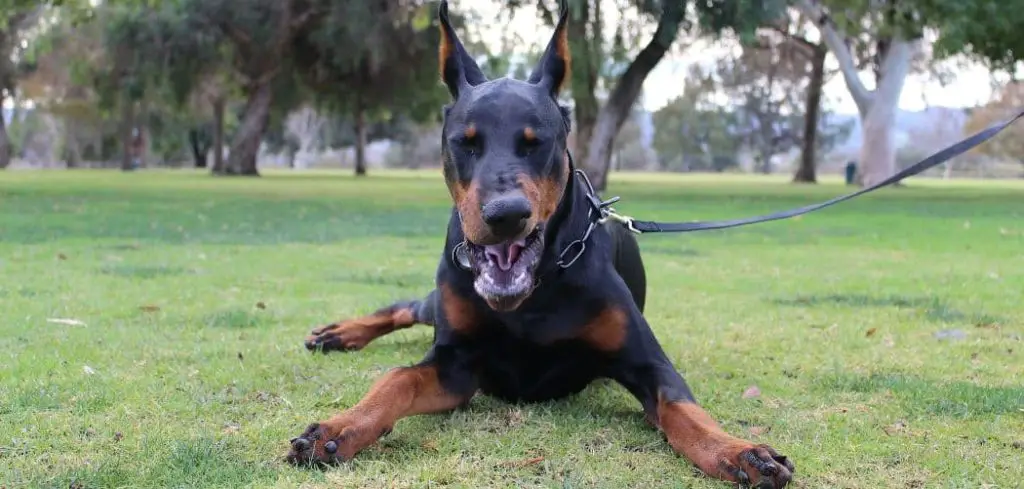A dog throwing up food and clear liquid can be alarming, especially when it happens more than once. Vomiting in dogs can range from a mild digestive upset to a sign of a more serious health condition.
We outline the common reasons why a dog may throw up food and clear liquid, what you can do at home, and when to seek veterinary help.
Dog Throwing Up Food and Clear Liquid — Why It Happens
Dogs may throw up food and clear liquid due to a variety of issues, ranging from indigestion to more serious underlying conditions. Common reasons include eating too quickly, dietary indiscretion, gastritis, pancreatitis, intestinal blockages, or systemic illnesses like kidney or liver disease.
Sometimes, the clear liquid is stomach acid or water mixed with mucus, which builds up when the stomach is irritated.
While occasional vomiting may not be serious, repeated episodes or additional symptoms should not be ignored.

Dog Throwing Up Food and Clear Liquid: Common Causes
Eating Too Quickly
Some dogs eat their meals so quickly that food barely gets chewed before it’s swallowed. When this happens, the stomach may reject the poorly digested meal, causing vomiting of food and fluid soon after eating.
Clear liquid often comes up with the food because water and saliva mix with the stomach contents.
While this may seem minor, repeated episodes can irritate the stomach and cause inflammation, leading to further digestive upset.
Read more: Dog throwing up yellow and not eating (Here’s Why)
Dietary Indiscretion
Dogs are notorious for eating things they shouldn’t, from table scraps to garbage. This can easily upset the stomach and cause vomiting of food mixed with clear fluid.
The clear liquid may be gastric juice, which is produced in excess when the stomach lining is irritated.
If your dog frequently scavenges, this could be a likely explanation, but it’s important to ensure no toxic substances were ingested.
Gastritis
Gastritis is inflammation of the stomach lining and can result from infections, spoiled food, or irritants like certain medications. A dog with gastritis may vomit partially digested food along with foamy or clear liquid.
Other signs include lethargy, loss of appetite, or drooling. In mild cases, gastritis may pass with rest and dietary adjustments, but persistent vomiting should be evaluated by a vet.
Pancreatitis
Pancreatitis occurs when the pancreas becomes inflamed, often triggered by a fatty meal. Dogs with pancreatitis may vomit food and clear liquid repeatedly, often looking very uncomfortable.
They may also show signs such as hunched posture, abdominal pain, loss of appetite, or diarrhea. Pancreatitis can be life-threatening and always requires veterinary treatment.
Intestinal Blockage
If a dog swallows a foreign object such as a toy, bone, or sock, it can block the intestines. This often leads to vomiting food and liquid, sometimes with little progress in digestion.
Clear liquid may be regurgitated because the digestive system can’t move food past the blockage. This is a medical emergency and typically requires surgery to remove the obstruction.
Kidney or Liver Disease
Systemic illnesses such as kidney disease or liver disease can cause chronic vomiting. In these cases, dogs may vomit food and clear liquid frequently, sometimes along with bile.
Other signs include weight loss, increased thirst, urination changes, and overall weakness. These conditions require ongoing veterinary care and cannot be resolved with at-home remedies alone.
What to Do If Your Dog Is Throwing Up Food and Clear Liquid
If your dog vomits once but seems otherwise normal, it may not be a cause for alarm. Allow the stomach to settle by withholding food for a few hours, then offering small amounts of bland food like boiled chicken and rice.
Make sure fresh water is always available, but encourage slow drinking to avoid further vomiting. If your dog tends to eat too quickly, consider using a slow feeder bowl to reduce regurgitation.
Monitor closely for other symptoms such as lethargy, diarrhea, or abdominal discomfort. If vomiting persists for more than 24 hours, or if your dog cannot keep down water, veterinary care is necessary.
When to Call or Visit Your Vet
You should seek immediate veterinary help if your dog is vomiting food and clear liquid repeatedly, especially if it is accompanied by signs such as blood in vomit, weakness, severe diarrhea, bloated abdomen, or signs of pain.
Persistent vomiting in puppies, senior dogs, or those with pre-existing conditions should always be taken seriously. Dehydration can develop quickly, making early veterinary intervention critical.
If your dog vomits after eating something potentially toxic, such as chocolate, medication, or chemicals, contact your vet or an emergency clinic immediately.
Read more: Dog Throwing Up Yellow and Clear Liquid (Signs it’s more serious)
Key Takeaway
Vomiting food and clear liquid in dogs can stem from minor digestive issues or point to more serious health conditions. While occasional vomiting may resolve with rest and simple dietary care, repeated episodes, or additional concerning signs, require veterinary attention.
If in doubt, it’s always safest to contact your veterinarian to ensure your dog gets the right treatment and support for a healthy recovery.
